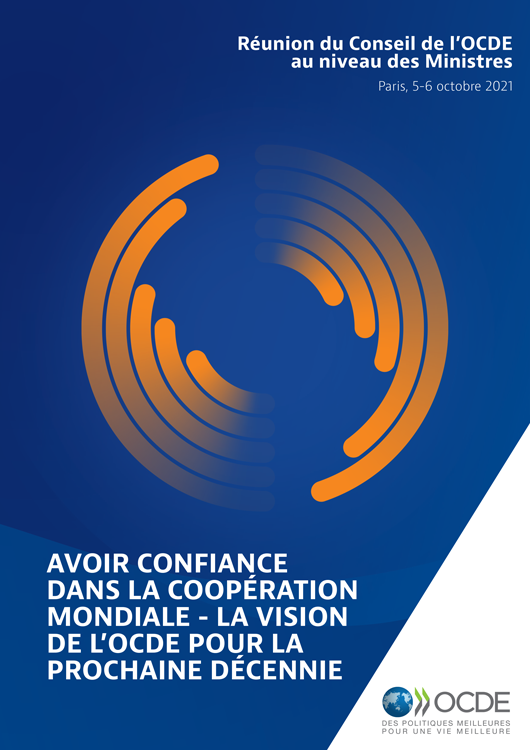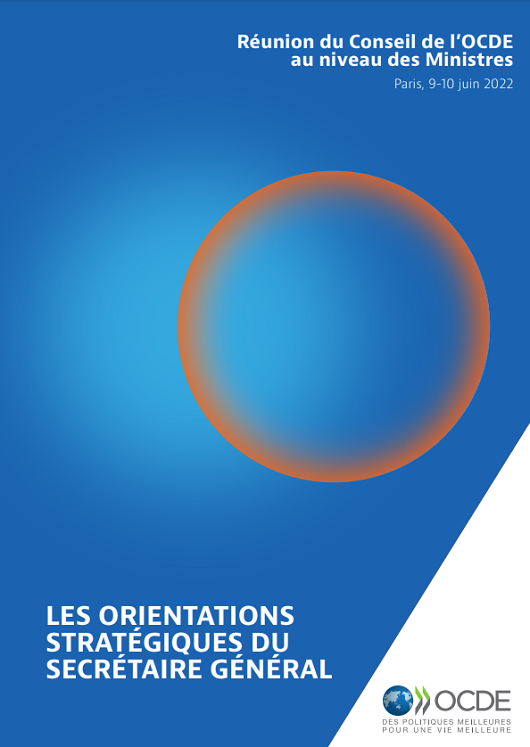Remarks by Angel Gurría, OECD Secretary-General
Mexico City, 3 November 2012
(As prepared for delivery)
Ladies and Gentlemen,
Distinguished guests,
It is a great privilege to discuss the approach that the OECD has taken to enhance and promote access to financial services, financial education and consumer protection. I also wish to congratulate Mexico for its chairmanship and stewardship of the G20 and welcome the opportunity to work with the Russian Presidency of the G20, building upon the important results achieved thus far.
The global financial crisis has been a catalyst for developing new approaches to address financial governance and risks in the domain of financial regulation and bank supervision - thanks, in particular, to G20 efforts. But, we are not out of the woods yet: the credit crunch is still there, notably in some of the largest advanced economies because of ongoing de-leveraging by banks. Don’t get we wrong: de-leveraging is not all bad! It is a bit like cholesterol; there is good (through re-capitalisation of banks) and bad (by shrinking banks’ balance-sheets) de-leveraging..... Unfortunately, bad de-leveraging is still underway, and it is holding back the recovery through a vicious cycle of credit rationing, deteriorating economic prospects and a general lack of confidence which is making financial institutions - the conveyor belt of the economy - even more parsimonious with credit. We need to re-instilL confidence in the economy at large, and, in particular, in the financial system.
For this to happen, we need to address the unfinished agenda of financial regulation and supervision – including by promoting new banking models and the separation of retail and investment banking activities. But we also need to better understand, at the very micro level, the impact of the financial crisis on households and individual consumers, as well as their restricted access to financial services, which has resulted in a lack of confidence of ordinary citizens in their banks and in the financial system at large.
Addressing issues of financial inclusion, financial consumer protection and financial education are part and parcel of a broader attempt to get confidence and trust back into the financial system and to reignite growth.
A “Trilogy Approach” to Financial Inclusion: Access, Protection and Education
Access to appropriate and affordable financial services is a basic essential of modern life: to make everyday transactions; to cover short terms financial needs or match longer term financial aspirations; to plan for retirement; to protect your patrimony; to protect against the impacts of unexpected health events of your savings, etc.
But access alone is not enough. We need to make sure that people are using the right financial products, tailored not only to their needs, but also to their situation and resources, present and future; that they have the necessary level of financial protection, providing them with safety and security in the market place; that they are equipped with the knowledge, skills and capacity to decipher the complexity of available financial services to make informed and appropriate choices.
These requirements are critical, but also difficult to meet in today’s financial landscape. The pace of change, in terms of new financial product developments and technological advances, has increased exponentially and has made consumers, in advanced and emerging economies alike, more vulnerable to unsuitable products and unfair sales practices.
This is why financial consumer protection matters. Fair and equal treatment, effective enforcement and appropriate regulation of market conduct are all essential for addressing the unequal position of individual customers and small businesses relative to their financial service providers; they are equally critical to upholding the public’s trust and confidence in financial markets.
But financial consumer protection is no magic bullet either. To be fully efficient, it needs to be supplemented by financial education. There is indeed a limited ability of regulation alone to efficiently protect consumers in the presence of low financial literacy. And while there is a rising number of active participants in the financial products market, surveys show a worrying and persistent low level of financial literacy in the population. This had been brought to the spotlight by the ongoing financial crisis that started, as is well known, as a credit bust with the collapse of the subprime mortgage market in the United States.
For these reasons, financial education is now internationally acknowledged as a critical skill for individuals. Endowing people with adequate information and providing them with basic elements of an economic and financial culture must become a long-term policy priority in every country.
Widening financial access for all, promoting financial education and literacy and ensuring adequate and proportionate financial consumer protection: this constitutes the three-pronged approach - the “trilogy” - that will restore trust and confidence in financial markets. This is also the approach at the core of OECD work.
Since 2010, the G20 has adopted thhis trilogy approach and endorsed principles on financial inclusion, principles on financial consumer protection and principles on national strategies for financial education.
Let me expand on the last two.
OECD/G20 Principles on Financial Consumer Protection
In the wake of the crisis, the OECD resumed its long-standing work on financial consumer protection and set up a Task Force of experts in this domain open to all G20, FSB and OECD members.
This OECD/G20 Task Force became, under the leadership of Mr. Juan Manuel Valle Pereña, an organiser of this conference, the conduit for the development of the High-Level Principles on Financial Consumer Protection mandated by the G20 at the initiative of the French Presidency. Following extensive consultations with relevant stakeholders – the financial industry and consumers’ associations alike – a set of ten principles were endorsed by G20 Leaders in Cannes in 2011.
The aim is to provide guidance to G20 countries and other interested economies willing to enhance their financial consumer protection legal and regulatory frameworks. The principles seek to complement, not substitute, any existing international principles, standards or guidelines; they are applicable across all financial services sectors – including banking, securities, insurance and pensions. They cover everything from the legal, regulatory and supervisory framework, the role of oversight bodies; equitable and fair treatment of consumers, disclosure and transparency; mechanisms for handling complaints and redress, all the way to promoting and ensuring competition – to mention only the most relevant.
I would like to draw your attention to one of them in particular – disclosure - as it illustrates the complementarities between consumer protection and financial education. Disclosure encapsulates such dimensions as information disclosure of course, but also conflicts of interest, financial advertising, the provision of advice or whether and how consumers should themselves provide appropriate information.
Consumers require the right information from financial service providers, in order to make informed decisions in the financial market place. That is why transparency is another key feature of financial consumer protection policy. Financial institutions should provide consumers with accurate and comprehensive information about the characteristics and risks of the products they sell in retail markets before an agreement is concluded. Together disclosure and transparency allow consumers to make informed assessments of the quality and expected results of the products before making their choices.
But here again, while transparency and disclosure are important, they are not sufficient. Insights from behavioural economics show that information alone does not necessarily lead to informed choices being made by consumers. First, the goal of disclosure should not be to simply provide more information – which can actually be counterproductive - but better and meaningful information. Disclosure policies are only effective when they cause salient and relevant information – truly helpful for decision-making – to be provided to consumers. Second, consumers need to have the skills and knowledge to decipher these additional elements of information. In other words, disclosure must be complemented by policies that support financial education and literacy.
OECD/G20 Principles on Financial Education
This is the reason why a second set of principles, also crafted at the request of the G20 - those on financial education - are so important. Recognising the need to complement financial consumer protection with financial education, the G20 entrusted the OECD and its International Network on Financial Education (INFE), tasked with Evaluating Financial Education Programmes. INFE comprises representatives from more than one hundred countries – with the task of elaborating High-Level Principles on National Strategies for Financial Education. These principles, developed with the financial support of the Russian Ministry of Finance and at the initiative of the Mexican Presidency, were endorsed by G20 Leaders in Los Cabos and were also welcomed by APEC Finance Ministers in August 2012. We are now moving to the next phase, which consists in promoting the implementation of these High-Level Principles.
What do these principles say? In order to reach out to people and have the intended impact on their financial behaviour, financial education initiatives should be conceived through a holistic approach that takes into account the regulatory framework and its reform as well as the development of financial markets and their main delivery channels and providers. They should also be articulated and coordinated at national level through tailored National Strategies on Financial Education. The G20 High-Level Principles on Financial Education are precisely aimed at providing guidance for the elaboration of these national strategies, essential to avoid unnecessary duplication of efforts and resources, while ensuring a more adequate coordination and cooperation amongst various public, private and civil stakeholders and ideally a better alignment of their interest and priorities.
The High-Level Principles on Financial Education are just one example of a series of policy instruments on financial education developed over the last years by the OECD and its INFE. Additional work is underway for instance on Financial Education at School in the framework of our PISA (Program for International Student Assessment) surveys.
Conclusion
We still have much more work to do. We have been mandated by the G20 to refine our recommendations pertaining to the actual implementation of the G20 Principles on Financial Consumer Protection and Financial Education. We must push forward on that.
Beyond this, we need to develop a truly holistic and integrated policy approach to financial inclusion and to access to financial services. The triptych – access, protection and education – should be integrated in the broader regulatory framework, alongside prudential regulation, governance and competition policies.
There are also other pending issues: for instance, how do we strengthen market regulation without stifling competition, innovation and access in the market place? There are no easy answers to such questions.
By working together at the national and international levels, by sharing what we know, by understanding the key issues from the end user perspective and learning from evidenced-based research, we can make progess to restoring trust and confidence in financial markets.
The OECD stands ready to continue to help design, promote and implement better financial inclusion, financial education and financial consumer protection policies, for better lives.
Thank you.
For more information, please read more.
Also AvailableEgalement disponible(s)

